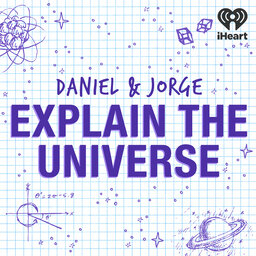Would the Universe be different with a zero Higgs field?
Daniel and Jorge explore how the Higgs field shapes our Universe and what it would be like to live without it.
See omnystudio.com/listener for privacy information.
In 1 playlist(s)
Daniel and Jorge Explain the Universe
A fun-filled discussion of the big, mind-blowing, unanswered questions about the Universe. In each e…Social links
Follow podcast
Recent clips

Fall equinox listener questions
19:36

Summer solstice listener questions
20:10

Spring equinox listener questions
20:41
 Daniel and Jorge Explain the Universe
Daniel and Jorge Explain the Universe